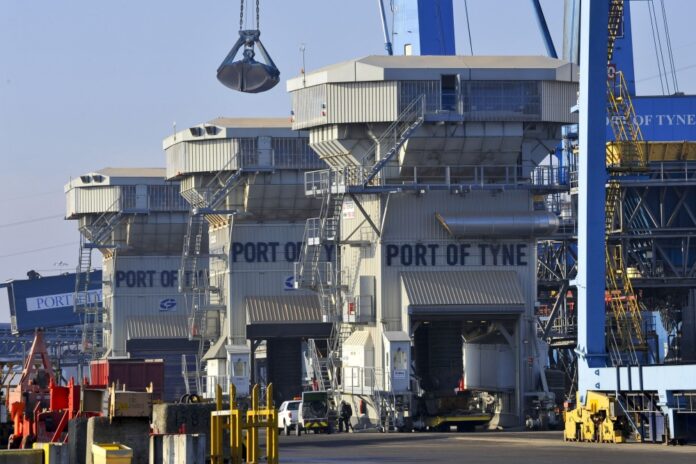The operator installed a private 5G network at the Port of Belfast in 2020
The Port of Tyne in north-east England harbours ambitions to become a smart port and has contracted BT to install a private 5G network and other surveillance and smart technology.
This means Port and its customers will be able to use tech including robotics and autonomous vehicles, AI and IoT.
As technology partner, BT will use Ericsson equipment build on the Port of Tyne’s 2050 Maritime Innovation Hub and digital transformation plan, deploying a hybrid network of fibre, 4G and 5G. At an unspecified time later this year, the infrastructure will provide fast and low latency connectivity across the port’s entire estate.
BT and Ericsson recently announced a partnership announced to provide commercial private 5G networks in the UK market.
The Port of Tyne’s technology and innovation team has demonstrated a series of initial and potential use cases. Two are recommended for immediate use – quayside operational optimisation programme and container tracking using optical carrier recognition or OCR – with scope to expand 5G coverage in future.
These are the eight key benefits the two expect to bring to the Port of Tyne:
• A connectivity platform on which other technology can be built for better managing remote operations and reducing fossil fuel consumption;
• Low latency network to support faster data processing and responsiveness for autonomous or remote working;
• Greater load capacity with the potential to connect thousands of devices simultaneously in a small area, for example, using smart meters and IoT sensors to monitor conditions and identify inefficient processes;
• Potential to offer new services and business use cases to attract customers wanting to use edge technology solutions, including AI applications and autonomous vehicles;
• A 5G-enabled, 200-acre clean energy testbed to help technology developers bring new products to market;
• Wireless connectivity across the estate means less expensive ground works and ducting will be required;
• Lower emissions and energy consumption as 5G processes more data bits per kilowatt of energy than older wireless tech; and
• Making better business decisions by extracting more data in real time from plant and machinery to identify efficiency savings, for example, by reducing idling time and unnecessary mileage.
Ashish Gupta, MD for Corporate and Public Sector at BT,said, “The secure network we have installed with Ericsson, along with our fixed fibre infrastructure, will provide the foundation to revolutionise many operations across the site – including automating processes and creating efficiencies.
By leveraging the high bandwidth, low latency networks we can use surveillance cameras, advanced analytics and artificial intelligence to check for damage to containers for example. We can also use IoT sensors to deliver benefits in the use of heavy plant and machinery.”



